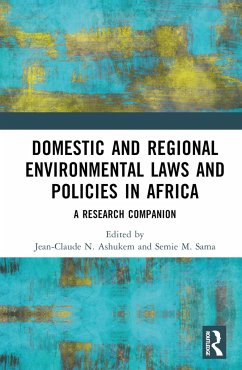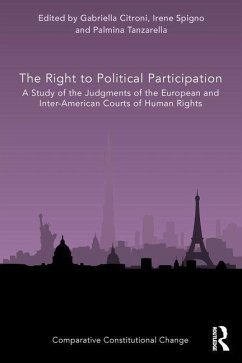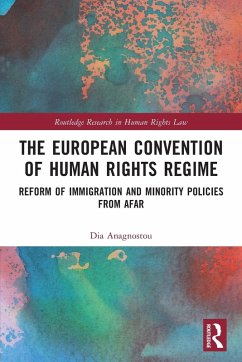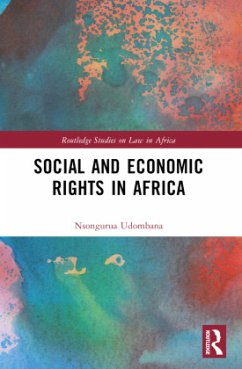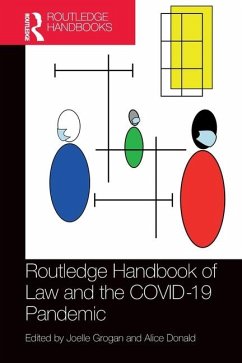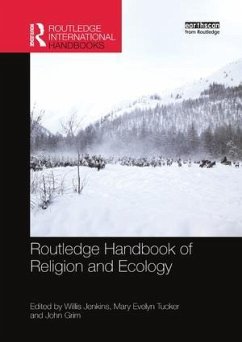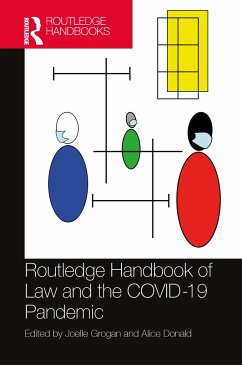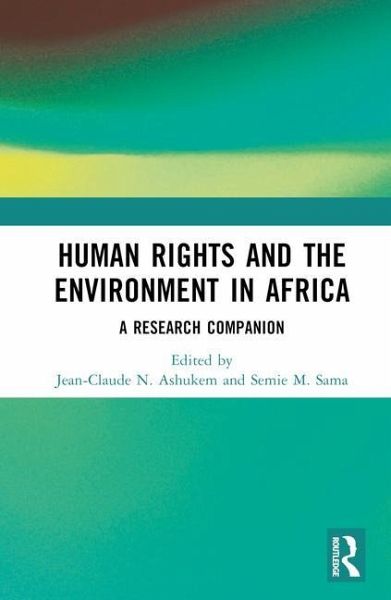
Human Rights and the Environment in Africa
A Research Companion
Herausgegeben: Ashukem, Jean-Claude N.; Sama, Semie M.
Versandkostenfrei!
Versandfertig in 6-10 Tagen
229,99 €
inkl. MwSt.
Weitere Ausgaben:

PAYBACK Punkte
115 °P sammeln!
The relationship between human rights and the environment, as evidenced by the 2022 UN Resolution on the human right to a healthy environment, is a topical, fascinating, uneasy, and increasingly urgent one. This timely collection explores the inextricable relationship between human rights and the environment as a critical lens for understanding and addressing key human rights and environmental issues confronting Africa.The work explores theoretical, philosophical, and doctrinal, research to interrogate and provide clarity on how and whether the human rightsbased approach to environmental prote...
The relationship between human rights and the environment, as evidenced by the 2022 UN Resolution on the human right to a healthy environment, is a topical, fascinating, uneasy, and increasingly urgent one. This timely collection explores the inextricable relationship between human rights and the environment as a critical lens for understanding and addressing key human rights and environmental issues confronting Africa.
The work explores theoretical, philosophical, and doctrinal, research to interrogate and provide clarity on how and whether the human rightsbased approach to environmental protection and policy implications has been effective in enhancing environmental protection and sustainability in Africa. It brings together an elite group of African and international experts to investigate the increasing connectivity and problems with African human rights, environmental governance, and the quest for sustainability.
The book is divided into thematic clusters, including the right of vulnerable communities to sustainability; climate change, the right to development and natural resource governance; corporate environmental responsibility and sustainability; the philosophy of environmental ethics and theories of human rights approaches to environmental governance; procedural environmental rights; the role of the judiciary in environmental protection; and desertification. These themes provide a structure to investigate and clarify specific fundamental questions on Africa's environmental governance paradigm.
This innovative contribution provides an interdisciplinary approach to the philosophical interrelationship and use of human rights approaches to ensure and enhance environmental protection and sustainability. As such, the book will be of interest to African scholars, researchers, and students in human rights law, environmental studies, political science, ecology and conservation, and development studies. It will also be a valuable resource for policymakers, governments, NGOs, practitioners, and all those interested in African environmental governance.
The work explores theoretical, philosophical, and doctrinal, research to interrogate and provide clarity on how and whether the human rightsbased approach to environmental protection and policy implications has been effective in enhancing environmental protection and sustainability in Africa. It brings together an elite group of African and international experts to investigate the increasing connectivity and problems with African human rights, environmental governance, and the quest for sustainability.
The book is divided into thematic clusters, including the right of vulnerable communities to sustainability; climate change, the right to development and natural resource governance; corporate environmental responsibility and sustainability; the philosophy of environmental ethics and theories of human rights approaches to environmental governance; procedural environmental rights; the role of the judiciary in environmental protection; and desertification. These themes provide a structure to investigate and clarify specific fundamental questions on Africa's environmental governance paradigm.
This innovative contribution provides an interdisciplinary approach to the philosophical interrelationship and use of human rights approaches to ensure and enhance environmental protection and sustainability. As such, the book will be of interest to African scholars, researchers, and students in human rights law, environmental studies, political science, ecology and conservation, and development studies. It will also be a valuable resource for policymakers, governments, NGOs, practitioners, and all those interested in African environmental governance.





